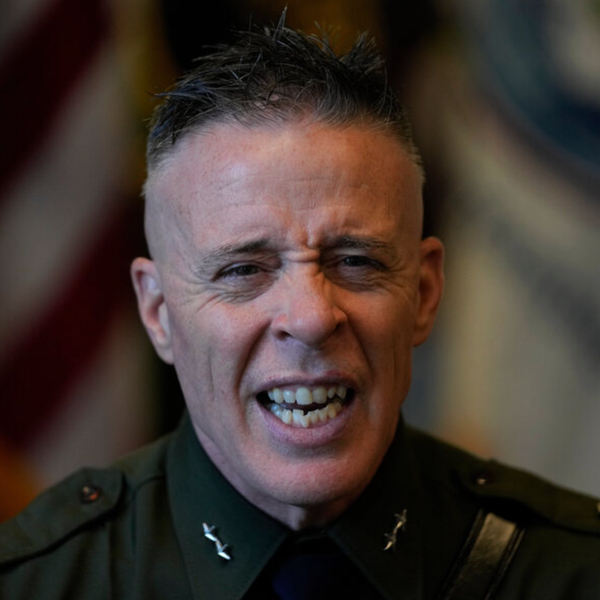9 Arrests In Hong Kong Reportedly Linked To Explosives Cache

By Julie Makinen And Violet Law, Los Angeles Times (TNS)
HONG KONG — Hong Kong police arrested nine people Sunday and Monday suspected of conspiring to manufacture explosives in this semiautonomous Chinese territory. News of the bomb plot comes before a highly anticipated vote in the territory’s legislature this week on a contentious framework for Hong Kong’s next major election.
Acting late Sunday night on a tip about suspicious activities at a vacant TV studio, officers found a cache of explosives and air rifles, along with maps marking a dynamite depot and two neighborhoods, including Admiralty, the seat of the legislature and government headquarters.
Despite reports in local media quoting unnamed police sources linking the possible bomb plot to the upcoming vote, police said at a news conference they had uncovered no evidence of a connection. “We won’t rule out any possibility,” said Au Chin-chan, chief superintendent of the police’s organized crime and triad bureau. Officers said the investigation was continuing. “We’re still trying to locate the depot,” said Au. “We may make more arrests later.
Five men and four women ages 21 to 34 were arrested, and at least one of them admitted to being a member of a “local radical group,” police said.
Two of the men were arrested at the vacant TV studio, police said. They were found with several pounds of white powder and a few liters of brown liquid, which police described as “semi-finished bomb materials.” Munitions experts arrived later and spent several hours detonating the materials. Authorities also found acetone peroxide, or TATP, a primary high explosive, at the home of other suspects.
Willy Lam, a political analyst based in Hong Kong, said more details about the arrests would need to be aired before conclusions could be drawn. But among intellectual and pro-democracy circles, he said, there has been significant discussion about whether Communist Party backers and supporters of current Chief Executive Leung Chun-ying might work behind the scenes to “encourage some of these more radical people to act irrationally and then arrest them as a form of intimidation” against others who might want to peaceably demonstrate their views.
But Lam said there was “no proof” that the arrests were orchestrated in such a fashion.
“Some groups do want to air their grievances in a more passionate manner,” he said, and depending on how far they go it could be a negative for the democracy movement if their tactics alienate more moderate residents.
The suspects included a post-secondary student, a teaching assistant, a construction worker, a technician and three unemployed people, according to the South China Morning Post, quoting an anonymous police source.
Police had warned last week that they were monitoring online forums of activist groups as the vote approached.
A number of pro-democracy groups have organized several days of protests ahead of the vote around the main government complex, where tens of thousands massed last fall in unprecedented street demonstrations that lasted 10 weeks and seriously riled Communist leaders in Beijing.
Those protests were aimed at a proposed election framework drafted by authorities in Beijing for Hong Kong’s next chief executive election. Hong Kong, a former British colony, returned to Chinese sovereignty in 1997 under an arrangement known as “one country, two systems.”
The election framework being voted on this week would, for the first time, allow Hong Kong citizens to cast ballots directly for the territory’s top leader, but would limit their choice to two or three candidates endorsed by a screening panel expected to be composed mainly of “pro-Beijing” members. (Until now, the chief executive has been chosen by a 1,200-member committee.)
For the framework to be implemented, Hong Kong’s Legislative Council must vote to adopt it, and a vote is expected later this week. But a bloc of legislators known as the Pan-Democrats have vowed to block passage of the framework.
Barring any last-minute surprises, it appears that the Pan-Democrats will have the numbers to vote down the election framework. But among supporters of last fall’s democracy protests, there is little jubilation surrounding that likely scenario.
The vote will simply ensure that the current system will remain in place, and little electoral reform is likely to be forthcoming for years, noted Jason Y. Ng, a Hong Kong author and attorney who is writing a book about the protests.”People feel damned if they do and damned if they don’t,” he said.
The organizers of last year’s demonstrations have fractured since the protests petered out last December, and no strong leader has emerged to take up the mantle of the movement. Into the void, a small but vocal clutch of “nativist” activist groups have become more prominent. They have staged protests against mainland Chinese tourists and traders, with some advocating secession or even independence.
(Law, a special correspondent, reported from Hong Kong and staff writer Makinen from Shanghai.)
(c)2015 Los Angeles Times. Distributed by Tribune Content Agency, LLC.
Photo: mariusz kluzniak via Flickr








